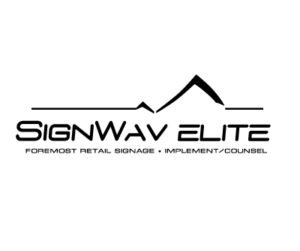In the world of commercial real estate, the role of property management can’t be underestimated, particularly when it comes to appliance maintenance. From plumbing and electrical repairs to heating, cooling, and safety fixes, property managers are the unsung heroes who ensure everything runs smoothly.
Whether it’s a leaky faucet, faulty wiring, or a malfunctioning HVAC unit, these issues can significantly impact a property’s condition and value. That’s where proactive property management comes in, identifying and addressing these problems efficiently to maintain a high standard of living for tenants and peace of mind for property owners.
So, if you’ve ever wondered about the ins and outs of appliance maintenance in commercial real estate, you’re in the right place. Let’s delve into the specifics of this crucial aspect of property management, and how it shapes the relationship between property managers and owners.
Understanding Appliance Maintenance in Commercial Real Estate
In commercial real estate, appliance maintenance extends beyond the routine work. It encompasses the upkeep of plumbing and electrical systems – addressing leaks, clogs and faulty wiring – and extends to heating, cooling, and safety systems. Intricate elements like foundation stability, interior, and exterior components come under its purview. With property managers at the helm, maintenance takes a proactive stance, identifying and resolving issues before they escalate, maintaining the property’s aesthetic and functional value.
However, for major repair works involving substantial expenditure, property owners prefer to have the final say. Consequently, the lease becomes instrumental, providing a clear delineation of responsibilities among property owners, property managers, and tenants. For example, washing machine odors, seemingly a minor issue, can multiply into significant problems if not addressed promptly. Therefore, maintaining a clear, efficient communication channel is crucial for timely intervention and resolution.
Repair and Maintenance Clauses in Commercial Lease Agreements
Delving deeper, it’s important to highlight the roles and responsibilities within commercial lease agreements, particularly those relating to the maintenance and repair of appliances and other interior aspects. Often, a commercial tenant is tasked with routine maintenance or repairs inside the property. This could involve addressing issues with frequently used items, such as the HVAC system or refrigeration units, which are crucial for daily operations. Local service providers, like Travis County Appliance Repair, can be invaluable resources for ensuring these appliances remain in proper working condition, helping tenants meet their obligations efficiently.
Remember, every commercial lease agreement varies. There’s no ‘one-size-fits-all’ approach. What remains constant are the extensive negotiations before finalizing these contractual agreements. This ensures both parties have their interests accounted for.
In contrast to residential leases, commercial landlords are typically not obliged to make repairs, unless documented in the contract. Given these unforeseen costs can eat into company profits, it’s essential to thoroughly negotiate these clauses before signing an agreement. For landlords, this negotiation safeguards their interests, shielding them from expenses caused by a tenant’s negligence.
To ensure transparency and seamless communication, precise definition of the tenant’s repair and maintenance obligations is crucial. This includes specifics on the type of notice to be provided to the landlord, consequences of non-compliance, and potential remedies in the event the landlord fails to make timely reparations. Meaning, if that well-used washing machine breaks down, both parties are clear on exactly who’s responsible to eliminate washing machine odors and service it promptly. So it’s clear – a comprehensive maintenance and repair clause in a specific lease agreement keeps business in the commercial space running smoothly.
Importance of Preventative Maintenance
Preventative maintenance proves vital in ensuring the longevity of rental appliances. Regular checks and repairs help keep equipment in prime condition, allowing them to last longer and save valuable business funds. Reactive maintenance, on the other hand, involving repairing or replacing appliances that fail due to lack of proper care, results in economic downturns.
Applied to all appliances, including washing machines, preventative maintenance can eliminate odors and other issues that can affect the appliance’s functionality and tenant satisfaction. Notably, proactive maintenance safeguards the value of real estate investments. This strategy is imperative as appliances comprise a significant fraction of a home’s overall value and a rental home’s attraction to potential residents. Therefore, scheduling frequent maintenance checks doesn’t only prolong the lifespan of appliances, but are beneficial in other arenas too.
Types of Common Appliance Maintenance
Property managers deal with different types of appliance maintenance in commercial properties. One key area involves plumbing and electrical repairs, such as fixing leaks, clogs, faulty wiring, and malfunctioning appliances. HVAC system upkeep also falls under my ambit, including ensuring heating and cooling units perform optimally.
Structural repairs come next on the list. This includes fixing issues with foundations, roofs, walls, and other structural components. Interior and exterior repairs, including flooring, walls, fixtures, siding, windows, doors repair, and respective replacements, are tasks I tackle as part of my duties.
Safety repairs round off the standard maintenance checklist. Addressing safety hazards such as broken stairs, ensures all parties involved – contractors, tenants, property owners – benefit from a seamlessly maintained property. However, the specifics of these repairs depend largely on the property management agreement’s terms between the respective property owner and myself.
Although eliminating washing machine odors doesn’t directly fall under common appliance maintenance scope, it’s part of fostering a welcoming and safe environment for tenants. Regular cleaning schedules and prompt attention to odors can prevent problems from escalating and causing more serious damage. In the long-run, proactive maintenance proves more cost-effective and less disruptive, while simultaneously enhancing the property’s overall value.
Tenant Vs Landlord Responsibilities
For clear division of responsibilities, landlords ought to propose comprehensive lease agreements.
These agreements exemplify division of repair, maintenance, and replacement responsibilities in an array of scenarios. In the event of negligence causing damage, leases protect the landlord. Expectancies surrounding extensive repairs and deadlines should be set. For instance, tenants capable of basic maintenance like eliminating washing machine odors could be beneficial.
For major repairs involving substantial costs and risk, landlords are usually inclined to control the situation, finding it imprudent to leave significant structural repairs in the hands of tenants. Insurance requirements, disasters, and damage due to negligence are factors typically specified in lease agreements.
Proactive Approach to Appliance Repairs and Maintenance
In property management for commercial real estate, a well-structured and proactive approach is essential to maintaining appliances. Property managers work in close synergy with contractors, tenants, and property owners, ensuring high-quality services are delivered in a timely and efficient manner.
Landlords, for example, hold the responsibility of maintaining common areas and ensuring that services like heat, water, elevator, air conditioning are in good repair. Alongside these, they take care of significant structural repairs, replacing plumbing, electrical wiring, machinery, and equipment furnished with the leased premises as per Wis Stats 704.072.
However, there’s an important role for tenants too. Wis Stats 704.073 outlines how tenants are obligated to manage repair and remediation for damage and infestation, borne from their actions or inactions. Also, tenants cover ordinary and routine maintenance and repairs for plumbing, electrical wiring, machinery, and equipment furnished with the leased premises. Nimble management of these duties ensures something as basic as washing machine odors can be eliminated quickly, contributing to a pleasant living environment and ultimately, tenant satisfaction.



























